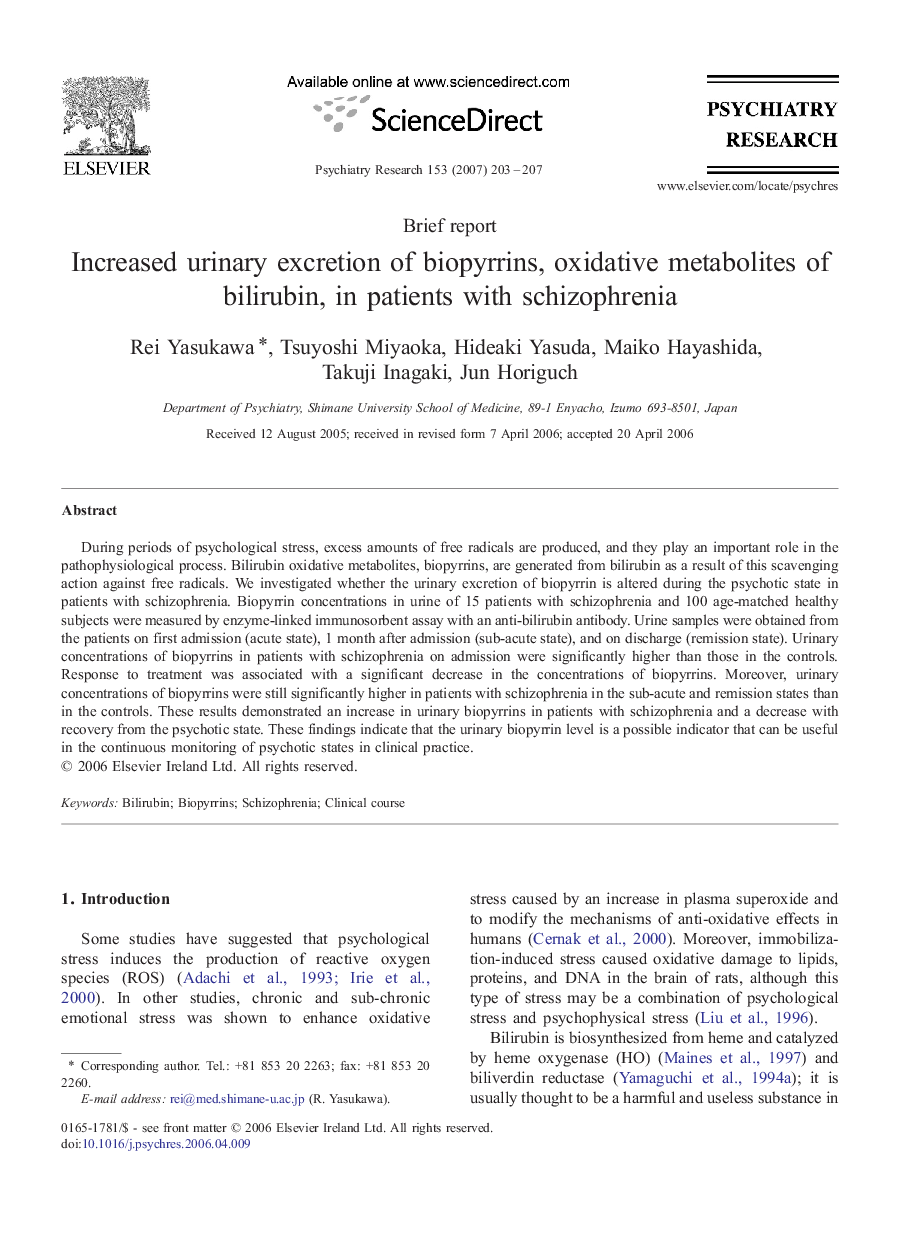| Article ID | Journal | Published Year | Pages | File Type |
|---|---|---|---|---|
| 334371 | Psychiatry Research | 2007 | 5 Pages |
During periods of psychological stress, excess amounts of free radicals are produced, and they play an important role in the pathophysiological process. Bilirubin oxidative metabolites, biopyrrins, are generated from bilirubin as a result of this scavenging action against free radicals. We investigated whether the urinary excretion of biopyrrin is altered during the psychotic state in patients with schizophrenia. Biopyrrin concentrations in urine of 15 patients with schizophrenia and 100 age-matched healthy subjects were measured by enzyme-linked immunosorbent assay with an anti-bilirubin antibody. Urine samples were obtained from the patients on first admission (acute state), 1 month after admission (sub-acute state), and on discharge (remission state). Urinary concentrations of biopyrrins in patients with schizophrenia on admission were significantly higher than those in the controls. Response to treatment was associated with a significant decrease in the concentrations of biopyrrins. Moreover, urinary concentrations of biopyrrins were still significantly higher in patients with schizophrenia in the sub-acute and remission states than in the controls. These results demonstrated an increase in urinary biopyrrins in patients with schizophrenia and a decrease with recovery from the psychotic state. These findings indicate that the urinary biopyrrin level is a possible indicator that can be useful in the continuous monitoring of psychotic states in clinical practice.
